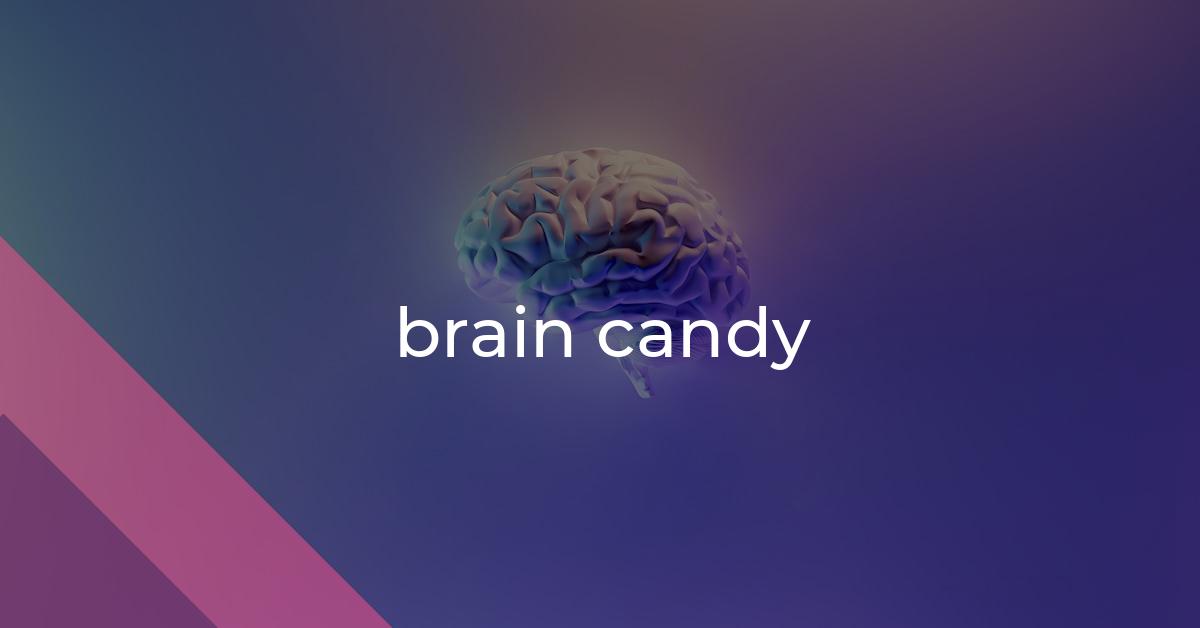brain candy: Idiom Meaning and Origin
What does ‘brain candy’ mean?
The idiom "brain candy" refers to lightweight or superficial entertainment or information that is enjoyable but lacks intellectual substance.

Idiom Explorer
The idiom "just another pretty face" is used to describe someone who is attractive but lacks intelligence, skills, or substance. It implies that the person's appearance is their main or only attribute, often used in a dismissive or derogatory manner.
A *head-emptier* is an idiom used to describe something that is mindless or does not require much thinking. It refers to an activity or situation that does not stimulate or engage the mind, often leading to a feeling of emptiness or boredom.
The idiom "funny stuff" refers to something that is amusing, quirky, or strange. It is often used to describe situations, actions, or remarks that are humorous or out of the ordinary.
The idiom *fun and games* means that a situation is enjoyable and entertaining, but it can also imply that there are hidden difficulties or challenges involved.
The idiom "for grins" is used to describe doing something for amusement or just for fun, without any serious or practical reason. It suggests doing something lighthearted or silly without expecting any meaningful outcome or benefit.
Fool's paradise is an idiom that refers to a situation or state where someone is happily deceived or living in delusion, unaware of the reality or impending trouble.
The idiom "food for thought" means something that is intellectually stimulating or thought-provoking. It refers to information or ideas that give a person something to think about or consider.
The idiom "few sandwiches short of a picnic" refers to someone who is not very intelligent or mentally lacking in some way.
An idiom meaning someone is not very intelligent or mentally unstable.
Untangling Essence
The idiom *brain candy* is a relatively modern phrase that originated in American English. It describes something that is entertaining or enjoyable but lacks intellectual or educational value. The term "candy" in this idiom refers to something pleasurable to consume, just like actual candy. However, it is important to note that while candy may provide temporary enjoyment, it doesn't offer any lasting nutritional benefits. This parallel is used to describe content or activities that may be entertaining in the moment but don't offer substantial intellectual stimulation or educational value.
Given its recent origins, it is difficult to pinpoint a specific source or cultural context where the idiom *brain candy* first emerged. However, the rise of popular culture and the proliferation of entertainment media in the late 20th century likely contributed to the development and widespread usage of this idiom.
The idiom *brain candy* is commonly used in informal conversations and various forms of media such as books, movies, and online platforms. It is often employed to describe things like light-hearted novels, mindless television shows, or entertaining but unchallenging activities. Despite its somewhat negative connotation in terms of intellectual depth, the idiom doesn't necessarily imply criticism or disapproval. Rather, it serves as a neutral descriptor for something that is meant to be enjoyed purely for the sake of entertainment.
The metaphorical use of "candy" and "brain" in the idiom *brain candy* highlights the temporary pleasure and absence of lasting intellectual stimulation. By associating the idiom with the brain, it suggests that the content or activity in question may be appealing to one's senses or emotions but doesn't engage their cognitive faculties or contribute to their intellectual growth.
Indulging in brain candy provides mental stimulation with content or activities that entertain and offer enjoyment, but lack substance. It can be a welcome escape from more intellectually demanding pursuits, providing a break from deep thinking and giving the brain a chance to relax. Just as arm candy provides visual appeal without deeper meaning, brain candy provides entertainment without intellectual challenge. It's like enjoying a cheap thrill - something that is exciting or amusing but lacks depth or lasting significance.
The idiom *arm candy* refers to a person who is attractive and serves as a companion purely for their visual appeal. Similarly, *brain candy* refers to content or activities that are enjoyable but lack intellectual or educational value. Both idioms emphasize the superficial nature of the subject at hand - whether it's a person or a form of entertainment. While arm candy may be visually appealing, it doesn't offer any deeper emotional or intellectual connection. Likewise, brain candy may be entertaining, but it doesn't engage one's cognitive faculties or provide any substantial intellectual stimulation.
On the other hand, the idiom *cheap thrill* refers to something that is exciting or amusing but lacks depth or lasting significance. It is often used to describe short-lived excitement or enjoyment that is relatively easy or inexpensive to obtain. Similarly, *brain candy* offers temporary entertainment value without the need for intellectual effort or deep analysis. It's a quick and easy way to satisfy the desire for leisure and enjoyment without having to invest significant time or energy.
The idiom *brain candy* serves as a reminder of the human desire for leisure and entertainment. While it acknowledges the value of intellectual pursuits and educational endeavors, it also recognizes the importance of relaxation and enjoyment in one's life. The use of this idiom can spark discussions about the balance between work and play, as well as the different ways in which individuals seek to fulfill their recreational needs.
The idiom *brain candy* is a metaphorical expression that refers to something that is enjoyable but lacking in intellectual or educational value. It originated in American English in the late 20th century and has since become a widely used phrase. The metaphorical use of "candy" and "brain" highlights the temporary pleasure and absence of lasting intellectual stimulation. As a neutral descriptor, this idiom acknowledges the importance of entertainment and leisure in one's life while also prompting discussions about the balance between intellectual pursuits and recreational activities.
Example usage
Examples of how the idiom "brain candy" can be used in a sentence are:
- She enjoys reading mystery novels as brain candy after a long day at work.
- Watching cartoons is her way of indulging in some brain candy on weekends.
- He prefers to listen to upbeat pop music as brain candy while driving.
More "Entertainment" idioms



